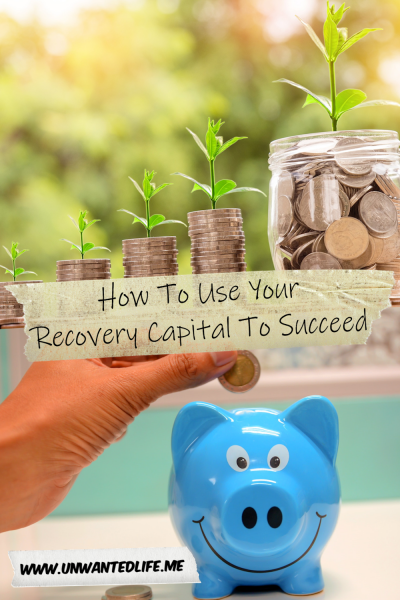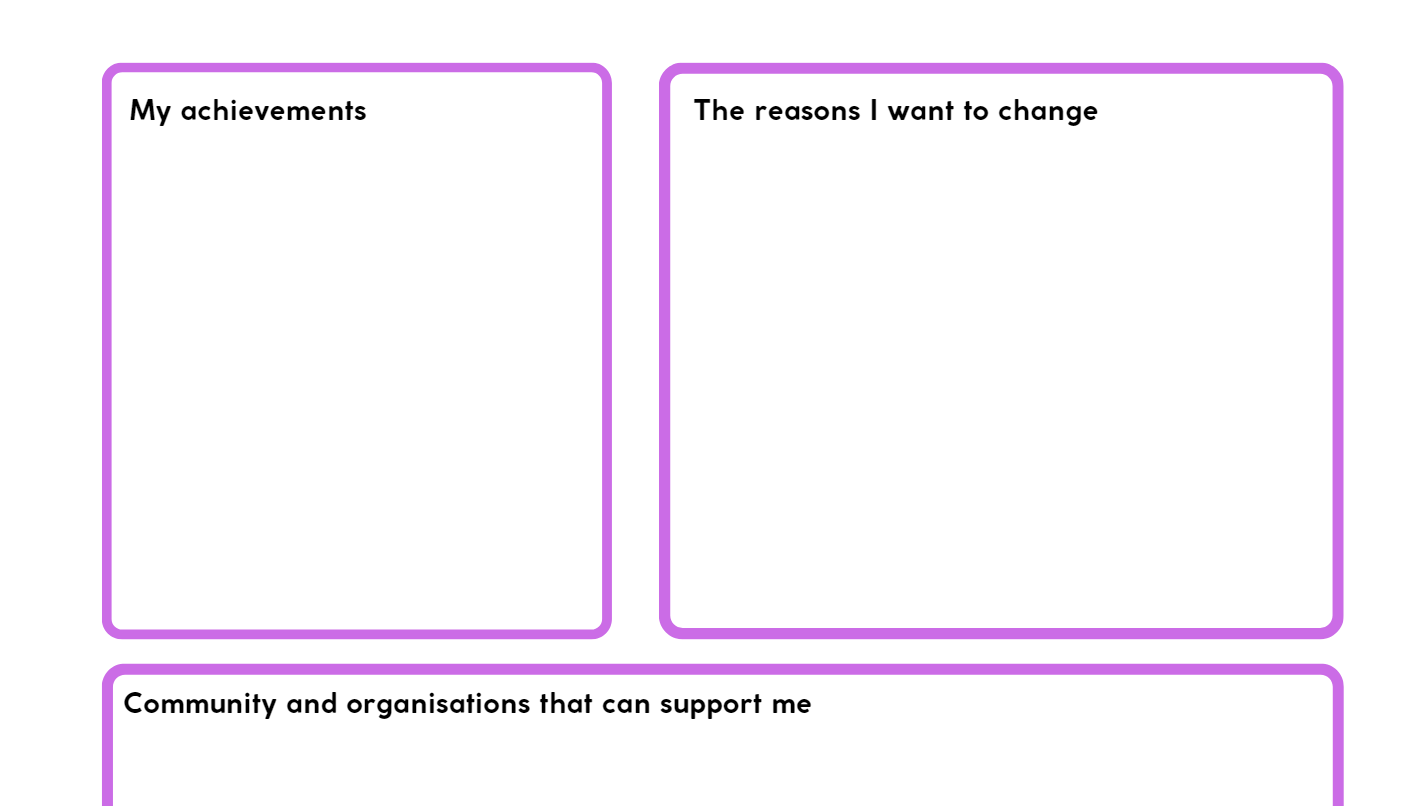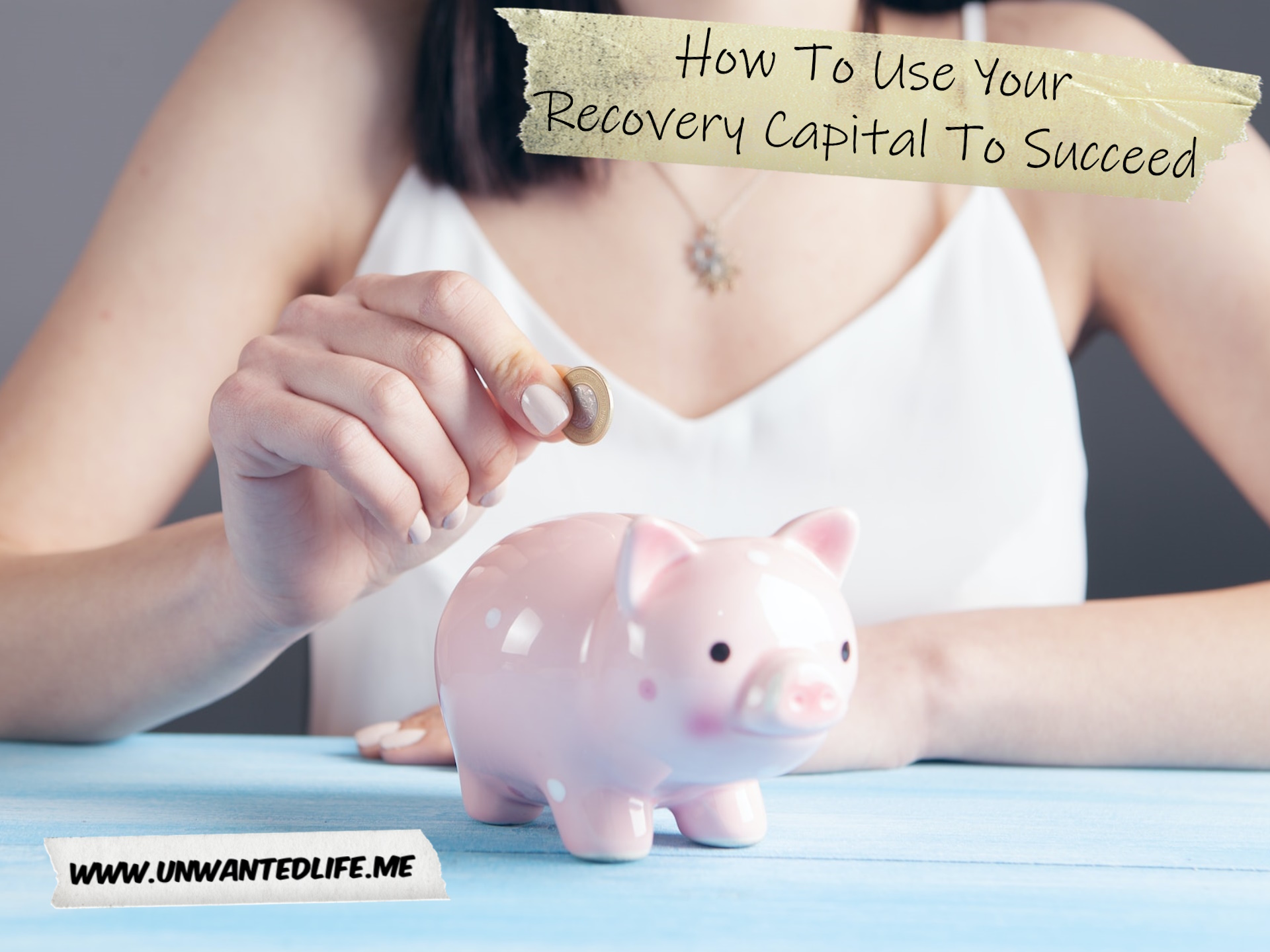I first came across recovery capital while working for a substance dependency charity. Although it’s best known within the field of addiction, I believe it has other applications beyond that field, such as in mental health. I hope you enjoy reading my reasoning for why it can be useful regarding our mental wellbeing. You might also find a nice treat at the end of the article.
What Is Recovery Capital?
The original definition for recovery capital is that it’s the sum of someone’s resources that will help and sustain that person’s recovery from substance dependency, or other addictions (Best and Laudet, 2010). This can be extended further by looking at the work of Cloud and Granfield (2009) who outlined some of the basic components of recovery capital, which are:
Social capital
This refers to the relationships and obligations a person might have that will support them in their recovery.
Physical capital
Such as having a place to live, an income, and other tangible assets that might help.
Human capital
This can also be referred to as personal capital and covers the strengths, skills, and other positive attributes and traits a person might have. This can include stuff like their education, empathy, and their aspirations.
Cultural capital
This form of capital is where your values, beliefs, and attitudes can be used to support your recovery.
The Benefits Of Recovery Capital
According to White and Cloud (2008), recovery capital has highlighted a shift within the field of addiction to focus on internal and external assets. Hopefully, this will mean more treatment programmes will include people’s support networks, personal strengths, and other potential capital. However, budget restraints often result in this aspect of treatment not getting the attention it needs. This makes it much harder for people to flourish in their recovery.
When I first started working at the substance dependency charity, they had a team that helped people find and secure accommodation, and I was allowed to try to create a pathway to college for our clients. However, it wasn’t long until funding was cut back and these valuable recovery support options disappeared.
Whether used to support a form of addiction or mental wellbeing, one thing that recovery capital does is to help create a sense of empowerment and improved quality of life (Best and Laudet, 2010). When you’re able to get a client to put together the support they actually have, you can really see how effective it is in driving positive changes.
That’s because people often underestimate the support options they have. Thus, by helping them realise they have more than they believed, you’re also helping them connect with that support. More often than not, most people’s problems come down to issues with not accessing the support around them and talking more. In my experience, anyway.
Recovery Capital And Mental Health
As I’ve said, recovery capital refers to the internal and external resources that individuals can draw upon to initiate and sustain their recovery from addiction. But it can also be useful for supporting our mental wellbeing. It’s a lot like having a safety plan, in a way.
Tew (2013), when talking about recovery capital exclusively in the context of mental health, believed that assessing someone’s situation in relation to their recovery capital had a lot of benefits. They state that this process moves away from the damaged person narrative, and towards people having the potential to move forward by building on what they already have. This can come in the form of using their existing strengths, but also addressing significant gaps in their potential capital.
For example. If someone doesn’t think they have anyone within their support network, you can help the person find out if that is actually true. And if it is, what could be done about it. Tew (2013) believes that by doing this, people may be able to learn to deal with challenging situations and life transitions. Therefore, I’m not the only person arguing the merits of recovery capital in supporting our mental wellbeing.
It should come as no surprise that people with a big stockpile of recovery capital will have better long-term recovery outcomes. So, what would you include in your recovery capital?
Supportive relationships
Having positive relationships with loved ones and other supportive individuals and organisations can provide a sense of belonging, validation, and encouragement. I included organisations because your GP, social worker, etc. can also be an important source of supportive relationships.

Having meaning
Engaging in activities that are fulfilling to you as an individual can provide a sense of purpose and direction. This can come in the form of having hobbies, finding fulfilment in your work, being a parent, volunteering, etc.
Personal strengths
Although we might not always realise it, we all have our own personal strengths. The ones we don’t have but could benefit from can also be developed, expanding on your existing recovery capital. One I often come across in therapy is how people think they’re not resilient when they’re struggling to cope. Often what they’re trying to cope with is on a scale where anyone would struggle. This means as you explore this with them, you can help them see that they’re more resilient than they give themselves credit for.
Achievements
Another thing that often gets overlooked is our achievements. The more you’re struggling, the more likely you are to discount or even not notice your achievements. Thus, making an effort to catalogue your achievements can be a great way to build your recovery capital.
Hope and optimism
Maintaining a positive outlook and a sense of hope for the future can help individuals stay motivated and committed to their recovery. Although, it is often easier said than done. What can be easier to do is to pay attention to what inspires you. I can be inspired by a lot of things, such as seeing someone’s artwork or reading an article. For others, it might be their partner or their children. Tapping into that is another good source of recovery capital.
Recovery Capital Worksheet
To help you with building your recovery capital, I’ve created a handy worksheet you can use. It’s also free to download. It features a selection of boxes that you just need to fill in to create your personal recovery capital. This will also make it something you can refer to whenever you need it.
This worksheet includes sections on the reason why you want to change, your achievements, what inspires you, what your skills are, etc. The worksheet has been designed to help you create a well-thought-out recovery capital. You can download it by clicking the button below.

You can download the worksheet by clicking here.
Summary
Recovery capital might have started out as something to help people overcome their addictions, but it can be so much more than that. It can be successfully applied to the recovery of poor mental health, but also as a way to maintain good mental health. I hope you’re willing to give it a try. Let me know in the comments section below if you will, or if you won’t. I love to read your comments.
As always, leave your feedback in the comments section below. Also, please share your experiences with using your recovery capital in the comments section below as well. Don’t forget, if you want to stay up-to-date with my blog, then sign up for my newsletter below. Alternatively, get push notifications for new articles by clicking the red bell icon in the bottom right corner.
Lastly, if you’d like to support my blog, you can make a donation of any size below. Until next time, Unwanted Life readers.
References
Best, D., & Laudet, A. (2010). The potential of recovery capital. London: RSA. Retrieved from https://facesandvoicesofrecovery.org/wp-content/uploads/2019/06/The-Potential-of-Recovery-Capital.pdf.
Cloud, W. & Granfield, W. (2009) Conceptualising recovery capital: Expansion of a theoretical construct,
Substance Use and Misuse, 42, 12/13, 1971-1986. Retrieved from https://www.researchgate.net/publication/23480425_Conceptualizing_Recovery_Capital_Expansion_of_a_Theoretical_Construct.
White, W., & Cloud, W. (2008). Recovery capital: A primer for addictions professionals. Counselor, 9(5), 22-27. Retrieved from https://www.chestnut.org/resources/0adac83f-df24-4332-8f28-7a025334644f/2008-Recovery-Capital-Primer.pdf.


thanks for sharing this useful information – this is a topic I was unfamiliar with before…
Thanks for commenting
I didn’t know you could use the cultural capital for recovery. This is interesting to use the capital to succeed. Thank you for sharing!
Thanks for commenting
I really love this article and the advice around applying the methods associated with Recovery Capital is great! While reading this I was thinking of my own experience with overcoming obstacles with chronic illness. I found that I did end up using quite a few of these methods to help me get through the really rough times, including reviewing past achievements. Thank you!
Thank you for sharing your experience and showing how it can be applied to other areas of support
I haven’t heard of recovery capital before, but it does sound like it is useful for mental health and helping a person recognize their internal assets like their achievements and personal strengths as well as external assets like family, friends, and organizations that can support them. Also, the worksheet looks great!
Thank you for sharing your thoughts and your comments on my worksheet 😊
Firstly, that is amazing you working for that charity, it sounds like the charity does some amazing work. I didn’t know about the different types of capital when it comes to recovery with addiction, but it makes sense. To be successful the person needs a range of support to help them achieve it. This post is so informative and really helpful for people who may be or have loved ones going through addiction. Thank you for sharing this informative blog post.
Lauren
The same kind of support that can be used to help manage our mental health. Thanks for commenting
Great post – thank you for sharing! I didn’t know what recovery capital was before, so it was interesting to learn about!
I’m glad I was able to share something new with you
Brilliant article. I think I started my recovery when I wrote down all the things I didn’t like about my life, I turned the negative into positive and then was honest about what I want and what I am good at. This gave me purpose, and my mental health has been far more balanced since. I’m not saying I’m always happy, I just don’t let the down days drag me down too far. I love this concept, thank you.
Not letting you down days drag you down is a good place to be. Thanks for sharing